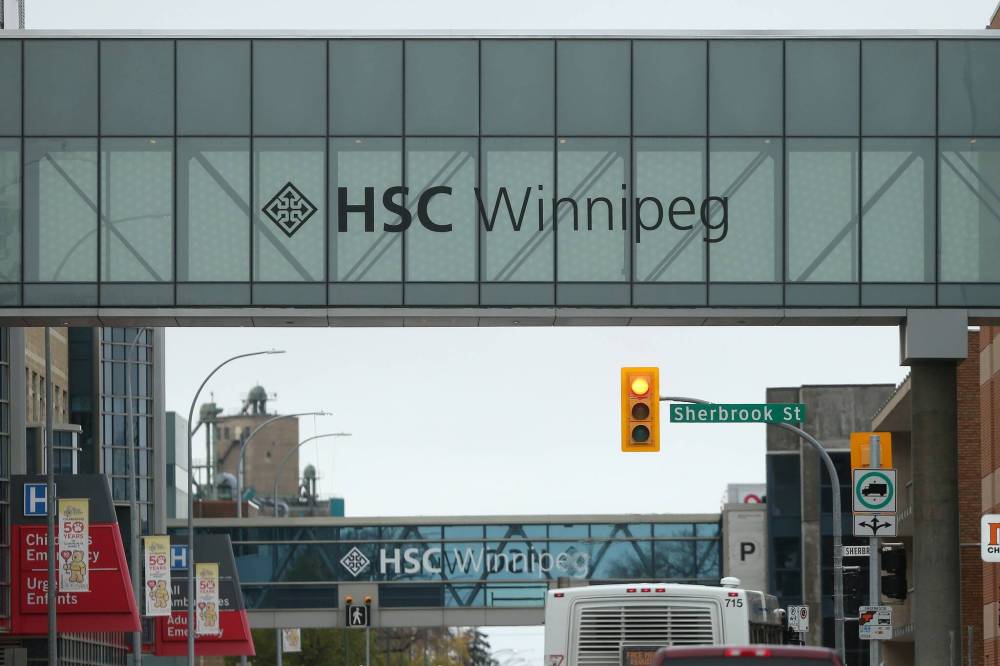Time to treat the ER crisis like an emergency
Read this article for free:
or
Already have an account? Log in here »
To continue reading, please subscribe:
Monthly Digital Subscription
$0 for the first 4 weeks*
- Enjoy unlimited reading on winnipegfreepress.com
- Read the E-Edition, our digital replica newspaper
- Access News Break, our award-winning app
- Play interactive puzzles
*No charge for 4 weeks then price increases to the regular rate of $19.00 plus GST every four weeks. Offer available to new and qualified returning subscribers only. Cancel any time.
Monthly Digital Subscription
$4.75/week*
- Enjoy unlimited reading on winnipegfreepress.com
- Read the E-Edition, our digital replica newspaper
- Access News Break, our award-winning app
- Play interactive puzzles
*Billed as $19 plus GST every four weeks. Cancel any time.
To continue reading, please subscribe:
Add Free Press access to your Brandon Sun subscription for only an additional
$1 for the first 4 weeks*
*Your next subscription payment will increase by $1.00 and you will be charged $16.99 plus GST for four weeks. After four weeks, your payment will increase to $23.99 plus GST every four weeks.
Read unlimited articles for free today:
or
Already have an account? Log in here »
Hey there, time traveller!
This article was published 23/08/2022 (1203 days ago), so information in it may no longer be current.
Health Sciences Centre was forced to close about half its emergency department beds over the weekend, the result of a shortage of nurses.
It’s not the first time emergency room capacity at Manitoba’s largest hospital has been scaled back because of a lack of nurses. Nor is the staffing shortage unique to HSC; hospitals across the province have been struggling to keep beds open, as there are not enough nurses to staff them. In some parts of rural Manitoba, ERs have been closed for entire weekends, sometimes longer, owing to an acute shortage of nurses and other health-care staff.
There are many factors driving the nursing shortage, not the least of which is an aging population that’s causing labour shortages in many industries. However, the provincial government’s less-than-stellar treatment of heath-care staff generally – and nurses specifically – in recent years cannot be ignored.
Nurses went nearly five years without a contract in Manitoba, including during the COVID-19 pandemic. A collective agreement was finally signed last year, but with retroactive pay increases below 1.5 per cent per year, and only two per cent salary adjustments for 2022 and 2023 (less than the two to three per cent increases in the previous contract). The penny-pinching deal will do little to attract and retain nurses.
Nurses went nearly five years without a contract in Manitoba, including during the COVID-19 pandemic.
When provincial health officials reorganized hospitals in Winnipeg prior to the pandemic, they did so without meaningful consultation with health-care staff. Nursing jobs were eliminated at several hospitals and re-posted elsewhere, forcing many into disciplines in which they had little or no experience.
Add in factors such as forced overtime, abuse from patients in the workplace (including an increase in violent attacks) and deteriorating working conditions, in part because of staffing shortages, and it’s easy to see why so many nurses are leaving the field.
The current situation is untenable. ER doctors are now openly questioning whether patients are receiving appropriate care. Resuscitation beds are often full, forcing some trauma patients into gurneys in hallways. Many patients who require treatment in hospital beds are spending days in ERs because no medical beds are available.
Nurses are doing the best they can under almost impossible conditions, but acknowledge patient care is suffering.
The current situation is untenable. ER doctors are now openly questioning whether patients are receiving appropriate care.
To call this a crisis would be an understatement. Unfortunately, it will likely get worse with the onset of the fall and winter respiratory-illness season, which could include a COVID-19 resurgence.
The question is: what to do about the nursing shortage and the ER crunch? There are no easy fixes, and granted, the nursing shortage is a national problem. But the lack of attention this issue is getting from the provincial government is staggering.
Desperate times call for desperate measures, yet there seems to be a lack of urgency from the Stefanson government to address the problem.
MIKE SUDOMA / WINNIPEG FREE PRESS FILES It is up to government officials, including Health Minister Audrey Gordon, to consult with nurses and others on the front lines.
Some solutions have been proposed by those on the front lines, including significant increases in resources for nursing recruitment and retention and far more support — including mental-health assistance — to those providing patient care. Those may not immediately solve the problem of nursing recruitment, but they might help reduce the number of those leaving the field. Nursing retention should be a top priority of government. So far, little has been done to convince nurses to stay on the job.
It is up to government officials, including Health Minister Audrey Gordon, to consult with nurses and others on the front lines to identify strategies to retain front-line staff and to mitigate the impact the nursing shortage is having on patient care. The time for leadership is now.

SHANNON VANRAES/WINNIPEG FREE PRESS FILES
Health Sciences Centre was forced to close about half its emergency department beds over the weekend.





